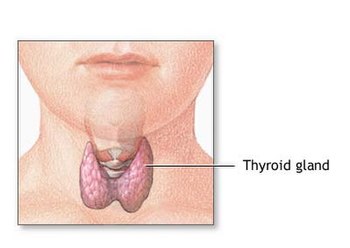Radioactive
iodine also called radio iodine is an important radioisotopes of iodine discovered in 1938.It has a radioactive decay half-life
of about eight days.
There are two radioactive isotopes that are
commonly used in patients with thyroid diseases: I-123 (harmless to thyroid cells) and I-131 (destroys thyroid cells).
Radioactive
iodine is associated with nuclear energy, medical diagnostic and treatment
procedures, and natural gas production. It also plays a major role as
a thyroid gland therapy because Iodine in food is absorbed by the
body and preferentially concentrated in the thyroid where it is needed for
the functioning of that gland.
Radioactive
iodine, given in a capsule or liquid form, is absorbed and concentrated by the thyroid
gland.
While
radiation can cause thyroid cancer, treatment of hyperthyroidism with
radioactive iodine does not increase your chances of getting thyroid cancer, because
the radioactive iodine passes out of your body in your urine and saliva within
days depending on the dose you received and your age.
Most
people don't feel different after treatment. But a few people may feel a little
nauseated.
Radioactive
iodine therapy destroys any remaining thyroid tissue or cancer cells that were
not removed during surgery.
Persons
take radioactive iodine, must follow doctor's instructions to avoid
exposing other people to radioactivity.
A
common treatment method for preventing iodine-131 exposure is by saturating the
thyroid with regular, non-radioactive iodine-127, as an iodide salt.
The
thyroid will absorb very little of the radioactive iodine-131 after it is
saturated with non-radioactive iodide, thereby avoiding the radiation from
radioiodine.
Side
effects of radioactive iodine;
· Dry mouth sometimes occurs.
· Tenderness in your neck area.
· Temporary or permanent decreases in blood cell counts.
· Fatigue.
· Sore throat.
· Swelling and tenderness of the salivary glands.
· Taste changes.
Radioactive
iodine is safe to use in individuals who have had allergic reactions to
seafood or X-ray contrast agents, since the reaction is to the compound
containing iodine, not the iodine itself.
Most
doctors also recommend that the patient follow a low iodine diet for 1 or 2
weeks before treatment. This means avoiding foods that contain iodized salt and
red dye #3, as well as dairy products, eggs, seafood, and soy.
 |
| ( Scheme of the thyroid gland. (Photo credit: Wikipedia) |